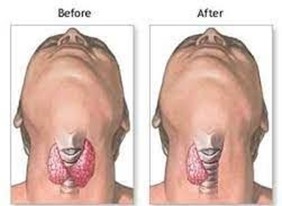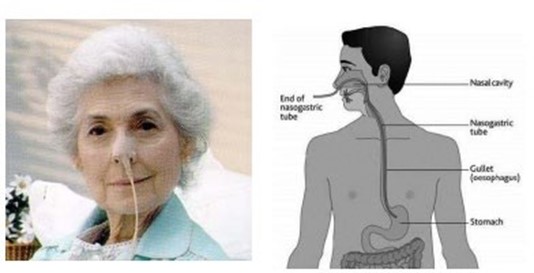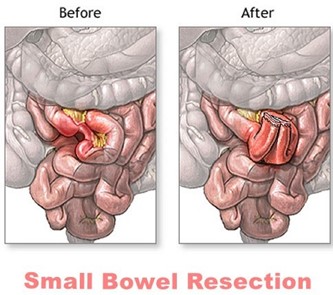A 40-year-old woman had a total thyroidectomy for hyperthyroidism after medical management was not successful. The nurse is preparing to teach the client about her thyroid hormone replacement (levothyroxine).
Which health teaching will the nurse include about this drug?
Select all that apply.
"You will need to get frequent laboratory tests to monitor your thyroid hormone levels."
"You will only need to take the drug for about 3 to 6 months."
"Don't take more of the drug than prescribed to prevent hyperthyroidism symptoms."
"Check with your primary health care provider if you take any other medication or herb.”
Correct Answer : A,C,D
The correct answers are a, c, and d. The client will need to take thyroid hormone replacement (levothyroxine) for the rest of her life since she had a total thyroidectomy. The dosage will need to be carefully monitored to ensure that it is correct, and laboratory tests will need to be done frequently to monitor thyroid hormone levels. Taking too much of the drug can cause hyperthyroidism symptoms, so it is important not to take more than prescribed. It is also important to check with a healthcare provider before taking any other medications or herbs, as they can interact with levothyroxine.
Answer b is incorrect because the client will need to take the drug for the rest of her life.

Nursing Test Bank
Naxlex Comprehensive Predictor Exams
Related Questions
Correct Answer is D
Explanation
The nurse should quickly assess the patient's vital signs to check for signs of shock and instability. If the vital signs are unstable, the nurse should initiate appropriate interventions to stabilize the patient, such as administering oxygen, starting IV fluids, and providing continuous cardiac monitoring. Based on the sudden onset of severe upper abdominal pain, diaphoresis, and a firm abdomen, the nurse should suspect a possible perforation or bleeding related to the peptic ulcer. This is a medical emergency that requires immediate intervention. Therefore, the nurse should prioritize notifying the healthcare provider and preparing the patient for urgent medical evaluation.
Option A, irrigating the NG tube, is not appropriate in this situation and may further exacerbate the patient's condition if the ulcer has perforated.
Option B, elevating the foot of the bed, is also not appropriate as it does not address the patient's current symptoms.
Option C, giving the ordered antacid, may not be effective in addressing the severity of the patient's symptoms and should be postponed until the healthcare provider has evaluated the patient.

Correct Answer is B
Explanation
Gas pains and abdominal distention are common postoperative complications following small bowel resection. Ambulation is a simple and effective nursing intervention that can help alleviate these symptoms. Walking helps stimulate peristalsis, which can help move gas and stool through the gastrointestinal tract. It can also help prevent postoperative complications such as pneumonia and deep vein thrombosis.
Administering morphine sulfate (option A) may relieve pain, but it can also worsen constipation and abdominal distention. Promethazine (option C) is an antiemetic medication and may be helpful if the patient is experiencing nausea, but it is not the best intervention for gas pain and abdominal distention. Instilling a mineral oil retention enema (option D) may also be helpful in some cases, but it is not typically the first intervention for these symptoms and should be ordered by a healthcare provider.

Whether you are a student looking to ace your exams or a practicing nurse seeking to enhance your expertise , our nursing education contents will empower you with the confidence and competence to make a difference in the lives of patients and become a respected leader in the healthcare field.
Visit Naxlex, invest in your future and unlock endless possibilities with our unparalleled nursing education contents today
Report Wrong Answer on the Current Question
Do you disagree with the answer? If yes, what is your expected answer? Explain.
Kindly be descriptive with the issue you are facing.
